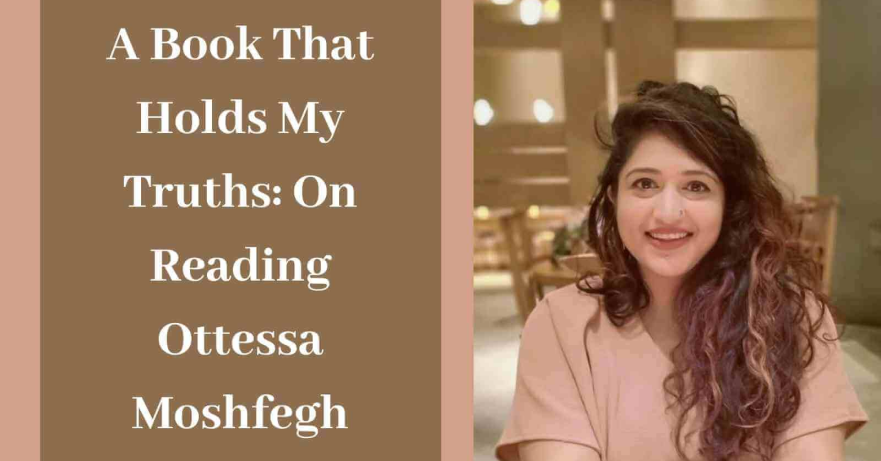I was in the Hardcore Security uniform, in charge of opening and closing a door. It was a door made of glass. Transparent. But somehow, I could not peer inside. This was not out of an issue of darkness or light, of curtains or shutters, or even a momentary vanishing of my sight. There was a stiffness, instead. Not in me but in the scene itself. It didn’t allow me to turn and see what was inside. As if the interior of the place was outside the field of vision that had been defined for me. And yet, despite not seeing anything, I knew that the place was not the cafe where I spent my days. I knew that it was a different place altogether: a place of significance where my role was significant, too. I could actually determine who got in and who didn’t, though the basis that I would use to select or reject people was not clear to me. I was anxious because of all the mystery.
But somehow, I could not peer inside. This was not out of an issue of darkness or light, of curtains or shutters, or even a momentary vanishing of my sight. There was a stiffness, instead.
The dream granted all this information about the situation in a single moment, or at least what felt like a single moment. A dream tells, and it definitely tells more than it shows. I’ve told this to Ali many times, but he says he can’t understand me. I think the problem is that I am not very good at explaining. A dream is just a film that plays inside your mind, he tells me. It’s definitely more than just that.
Anyway.
My father was the first person to approach me. He was carrying his fawda over his shoulder. His dhoti was pulled up, showing thin dark legs with a couple of hard veins knotting like tiny serpents under the skin. He was wearing a baniyan with one big hole near the area of the liver. His arms were like his legs, dark and veiny, and his palms were calloused, the cracks in them filled deep with someone else’s soil (I didn’t see the palms then, but memory told the dreaming self that detail—you see what I’m saying!). The forever-creased forehead was wrapped in a dirty white cotton cloth. Above it a patch of his bald head showed, with beading sweat and some closely cropped grey hair. His eyes were as sunk as they’d always been, the bone above them making a canopy. His lips were moving softly in a silent murmur; they’d always done that. He liked to practise what to say before saying it.
‘What do you want?’ I heard myself saying. A reminder that this whole conversation happened in Hindi would be appropriate here.
My father pointed inside with a slightly bent finger. ‘Everything is inside,’ he said.
‘You want to go inside?’
‘Yes.’
‘I can’t let you.’
‘Why?’
‘Because you’re sweating.’
He unwound the cloth wrapped around his head and started drying himself with it. Behind the neck, armpits, legs. When he was done he said: ‘Now I’m not sweating.’
‘No, but you’re stinking,’ I said. It was not that I’d smelled anything inside the dream, but my memory told me that he was stinking, that he was always stinking, and my dreaming self decided, at the spur of the moment, that a stinking man couldn’t be let inside.
My father pointed inside with a slightly bent finger. ‘Everything is inside,’ he said.
He put his hand under his dhoti, right around the crotch, and pulled out a deodorant from there. My mind felt a heat of confusion. It was the same deodorant that I’d bought three years ago—the only one I’d ever bought—and that my then roommate, a man named Ravan, had taken the liberty of using copiously.
My father sprayed the deodorant all over himself, including the tummy, which he reached through the hole in the baniyan. ‘Now, I’m not stinking,’ he said.
‘Good. Do you speak English?’
My father paused for a moment, then took a deep breath. ‘How fow shau shau jamjow kapow khau lau feesh vish,’ he said.
‘Oh, so now you speak English, too,’ I said. I was impressed. ‘Do you have money?’ I asked.
My father shook his head.
‘You can’t go in without money.’
At this, my father gripped his fawda and hurled it at the glass wall right beside the door. That glass wall—I learned this now; a dream also adds information as it develops—belonged to the same establishment whose gate I was guarding.
The glass shattered. The shattering made a bomb-like noise. I shook. I was in a panic. I was in a panic for my job, whatever the job was.
‘You stupid man, what have you done?’ I said to my father.
He ignored me and walked towards where the glass had been.
‘You’ll cut your feet,’ I said, rushing up to him.
Somehow, there was no glass on the ground. It didn’t even seem that unnatural. The usefulness of that glass wall to the dream was in its shattering, not in its pieces lying on the floor and threatening harm. There was a wide opening at the place where the glass wall had been a moment ago. I was beside my father; I could now look inside. There was something thrilling about that moment, and I felt it fully, maybe through a quickened heartbeat.
There was something thrilling about that moment, and I felt it fully, maybe through a quickened heartbeat.
A blinding white light. Father and I had stumbled inside. Suddenly a black bag emerged out of nowhere. Father picked it up and opened it. There were stacks of notes inside. ‘That’s what I was saying,’ my father said.
‘What were you saying?’
‘That the money is inside.’
‘Papa,’ I said, ‘I don’t have a bank account.’
‘Why?’
‘Because I’m Harish Jakhar.’
‘Then who am I?’ my father asked.
And that’s where the dream broke, and reality burst in all at once.
I woke up to see Jatav sleeping. He wasn’t snoring. The dream had woken me up to witness a miracle.
Excerpted with permission from Manjhi’s Mayhem, Tanuj Solanki
Publishing/Penguin India (November 2022)
You can buy your copy here.

Tanuj Solanki is the author of four books of fiction. His debut novel Neon Noon was shortlisted for the Tata Lit Live First Book Award 2016. His second, the short-story collection titled Diwali in Muzaffarnagar, won the Sahitya Akademi Yuva Puraskar in 2019. His novel The Machine is Learning was longlisted for the JCB Prize for Literature 2020 and was listed by The Hindu as among the 10 best fiction books of 2020. Manjhi’s Mayhem is his latest novel. He’s the Founding Editor of the online lit mag The Bombay Literary Magazine.










